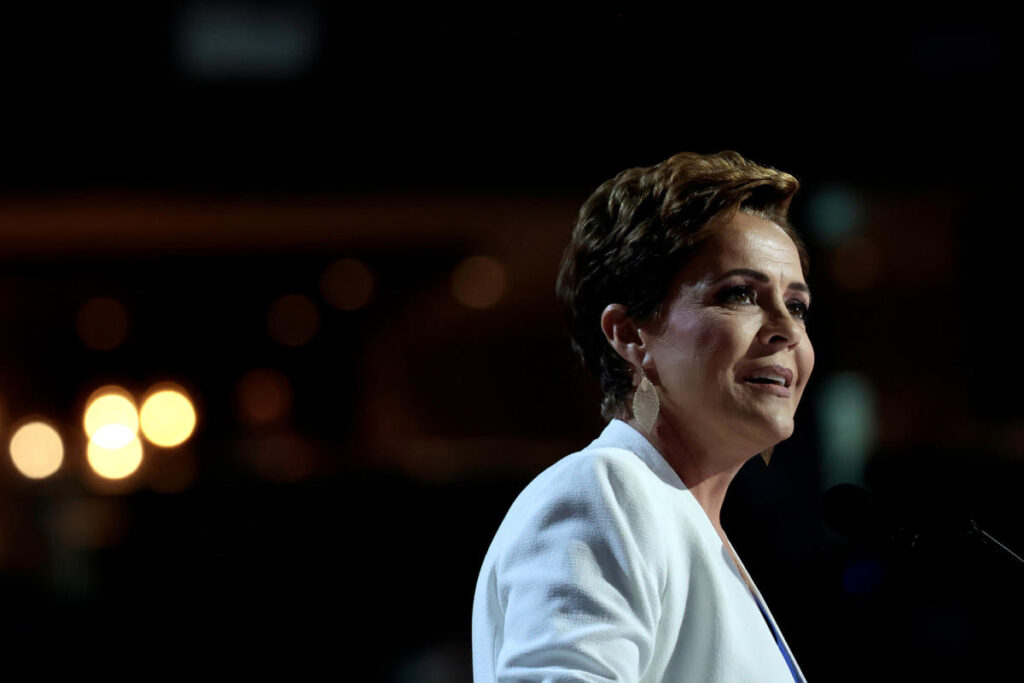The political landscape in Arizona has been significantly influenced by former President Donald Trump and GOP Senate candidate Kari Lake, particularly regarding their unsubstantiated claims of election fraud in the aftermath of their respective losses. Many conservative voters in the state, like 66-year-old John Giza, express a firm belief that the 2020 presidential elections were marred by widespread electoral malfeasance attributable to COVID-19-related rule changes. Giza, a retired Walmart employee from Show Low, demonstrates typical denialism regarding Trump’s loss, arguing that significant inconsistencies allowed ineligible voters to affect the outcome. Interestingly, this belief does not extend to Lake’s defeat in the 2022 gubernatorial election, where some, including Giza, acknowledge the fairness of the outcome against Democrat Katie Hobbs. This apparent discrepancy raises questions about the selective nature of political convictions among voters, particularly as it relates to different electoral contests.
Contrasting opinions surfaced when voters engaged in discussions about Lake’s election credibility. For instance, Karen Miller, a nurse from Scottsdale, expressed doubts about Lake’s conspiracy theories regarding her failed gubernatorial run while standing firmly by her beliefs about the 2020 presidential election being “shady.” Miller criticized Lake for her continued focus on these conspiracy theories, suggesting that acceptance of her loss could revitalize her political career by garnering wider support. Similar sentiments were echoed by other voters, such as Brendan Dolleman, who acknowledged problems with the 2020 elections but deemed Lake’s loss in 2022 legitimate, indicating a complex and often contradictory relationship with the narratives propagated by Trump and Lake.
The backdrop to these beliefs is Arizona’s poignant political history, especially as it saw Joe Biden secure a Democratic victory in 2020, an outcome that spurred vehement protests from Trump supporters. These protests were replete with unfounded claims of electoral theft and have embedded a culture of denialism within the state’s Republican electorate. Polls serve to illustrate this sentiment; a significant portion of Arizona Republicans continues to assert that Biden’s presidency lacks legitimacy, revealing deep-seated divisions and a culture of conspiracy that has emanated from Trump’s rhetoric. Yet when it comes to operationalizing these theories in relation to contemporary elections like Lake’s 2022 loss, responses from the same voter base are notably mixed, exposing the complexities of partisan loyalty versus individual electoral outcomes.
Despite the continued push for election denialism, some prominent figures and political observers in Arizona express skepticism regarding Lake’s influence comparable to that of Trump. Barrett Marson, a Republican strategist, highlighted the emotional connection Trump fosters among his supporters that Lake seems unable to replicate. This difference in political gravity leads to various responses; while Trump remains a revered figure whose statements are largely accepted uncritically, Lake does not engender the same absolute loyalty, suggesting that her attempts to align herself with Trump’s narrative might not resonate as strongly. Therefore, while both figures are faced with the challenge of appealing to an increasingly independent-leaning electorate, Trump’s ongoing influence overshadows Lake’s political aspirations, evident in her struggle against Democratic candidate Ruben Gallego as polls indicate her trailing position.
Even as some claim that Lake’s rhetoric contributes to her diminishing credibility, it is also evident that a segment of the electorate remains steadfast in their belief in her unwon fight against perceived electoral injustices. Voters like Dana Morrison-Miller and Sally Foree openly espouse views attributing election fraud to Lake’s loss and continue to express distrust toward the outcome of the gubernatorial race. These opinions reflect what seems to be an enduring thread of loyalty to Lake’s narrative, albeit one sustained by diminished expectations of her role in rectifying these perceived injustices. This paradox illustrates the fascinating landscape of political allegiance where some constituents support a candidate while simultaneously questioning her credibility based on her previous claims.
In conclusion, the political dynamics in Arizona offer a unique view of how entrenched beliefs in election integrity, personal loyalty, and party politics intertwine. While Trump’s sensational narrative holds strong sway over many, Lake’s claims of electoral fraud do not resonate equally across her voter base, as evidenced by the mixed reactions about the legitimacy of her gubernatorial defeat. This differential response illustrates a broader phenomenon within American politics, reflecting how deeply complexities of belief, loyalty, and individual electoral experiences shape the political landscape. As we move forward toward the anticipated Senate race, the outcomes will likely continue to reflect these intertwined loyalties, fueling both individual and collective narratives on election integrity, candidate credibility, and the role of personal affiliation in shaping political identities within the Republican base.

